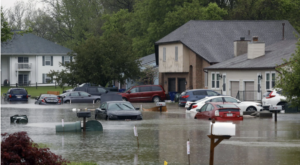Home insurance is designed to protect people from losses due to unexpected events that cause damage to their homes or belongings. Homeowners need to understand the different types of protection coverage available to them so that they can choose the policy that best suits their needs. Home insurance generally protects you from a variety of risks, such as fire, theft, crime, and natural disasters. With the right insurance, you can rest assured that your home and contents are financially protected.
1. Different Types of Home Insurance:
Home insurance offers a variety of coverages, each of which serves a specific purpose. Some of the most common types include liability insurance, supplemental living expenses insurance, homeowners insurance, and personal property insurance. Understanding these types of insurance can help people choose the right coverage for their needs.
2. Insure Your Home:
The most important part of any home insurance policy is insuring your home. This coverage protects the walls, roof, floors, and built-in elements of your home from risks such as fire, storms, and vandalism. It is important to make sure that the coverage limits of your policy reflect the current cost of rebuilding your home in the event of a total loss. This amount can vary significantly from what your home is worth on the market, so it is important to get a good appraisal.
3. Personal Property Insurance:
Homeowner insurance covers the furniture, equipment, clothing, and other valuables in your house. This coverage covers items that are damaged or lost as a result of covered items, such as theft, fire, or flood. Homeowners should list all of their belongings and calculate their total value to determine the amount of coverage that is right for them. Many plans cover personal property at either the actual cash value (ACV) or the replacement cost value (RCV). This can change the amount of your claim that you receive.
4. Scope of Liability:
Liability coverage is an important part of home insurance because it protects homeowners from potential lawsuits if someone is injured or something on the property is damaged. For example, if someone in your state slips and falls, liability insurance can help pay for medical bills and attorney fees to file a lawsuit. Personal liability coverage can protect against accidents that occur in the home, while medical coverage can pay for minor injuries for others, regardless of who is at fault. When choosing insurance coverage, homeowners should consider their lifestyle and the risks that come with it.
5. Additional Cost of Living Protection:
Supplemental Living Expense (ALE) coverage, also known as loss of use coverage, is an important part of homeowners insurance. It can help you pay for food, shelter, and other expenses if your home becomes uninhabitable due to a covered event such as fire or severe flood damage. This coverage can help pay for meals, temporary housing, and other necessary expenses while your home is being repaired or rebuilt. It is important to understand the scope and duration of ALE coverage, as it can vary greatly from policy to policy.
6. Actual Cash Value vs. Actual Replacement Cost for Cash Value:
People who own personal property should understand the difference between Actual Cash Value (ACV) and Replacement Cost Value (RCV) when considering the safety of their personal property. ACV takes into account depreciation, meaning that if you lose or damage a protected item, you will be reimbursed for its current market value, which may be significantly less than what you paid for it. RCV, on the other hand, pays based on the cost of purchasing a new item of the same type and quality, even if the old item has lost its value. When choosing a policy, homeowners should consider the pros and cons of each option.
7. Flood and Earthquake Insurance:
Many common homeowner’s insurance policies do not cover damage from earthquakes or floods. People who live in these areas that are prone to natural disasters may want to purchase separate flood or earthquake insurance to properly protect their property. You can usually purchase flood insurance through the National Flood Insurance Program (NFIP) or a private company. Earthquake coverage can be added as an add-on to a homeowner’s policy, but the price can be higher. Knowing the risks in your area can help you make informed choices about these additional coverages.
8. Business Coverage for Working from Home:
More and more people are working from home or running small businesses from home. Homeowners need to know how their insurance covers the risks associated with their business. Some homeowners insurance plans may not cover business equipment or the liabilities that come with running a business. People who run a business from their home should consider getting a Business Owners Policy (BOP) or adding an endorsement to their current homeowner’s policy to ensure that their business practices are covered. This added protection can protect business property, liability claims, and even loss of income due to property damage.
9. Valuable Personal Property Insurance:
Many people who own their homes have valuables such as jewelry, art, collectibles, and electronics that may be worth more than what their regular property insurance covers. To ensure that these valuables are properly protected, homeowners may need to purchase additional coverage called Valuable Personal Property (VPP) or put certain items on a schedule. This type of coverage typically has fewer exclusions and higher limits for certain valuable items than a conventional policy. It’s important to keep records of these things, such as receipts and assessments, to make the claims process go more smoothly if necessary.
10. Discounts and Bundling:
You can save money on your home insurance rates by getting discounts from many insurance companies. Some common ways to get discounts are by bundling multiple plans (such as home and auto insurance), installing a security system, maintaining a clean claims history, or joining certain groups. When homeowners are shopping for insurance, they should ask about discounts to get the best price and ensure they have adequate coverage.
11. How to Choose the Best Insurance Company?
Choosing the right insurance company is just as important as choosing the right coverage. Homeowners should research different insurance companies and compare their financials, customer service, how their business is handled, and reviews from other customers. Online tools and private agencies can tell you a lot about different insurance companies and their reputations in the industry. It’s also a good idea to talk to an insurance agent. They can help you sort through your options and find the coverage that best suits your needs.
Conclusion:
Homeowners who want to protect their investment and gain peace of mind need to understand their home insurance coverage options. From homeowners insurance to liability insurance, each component is important to protect you from potential financial loss. Homeowners should consider what coverage they need based on their specific needs and the condition of their home. This way, they can make informed choices and choose the best insurance to keep their home and belongings safe.




